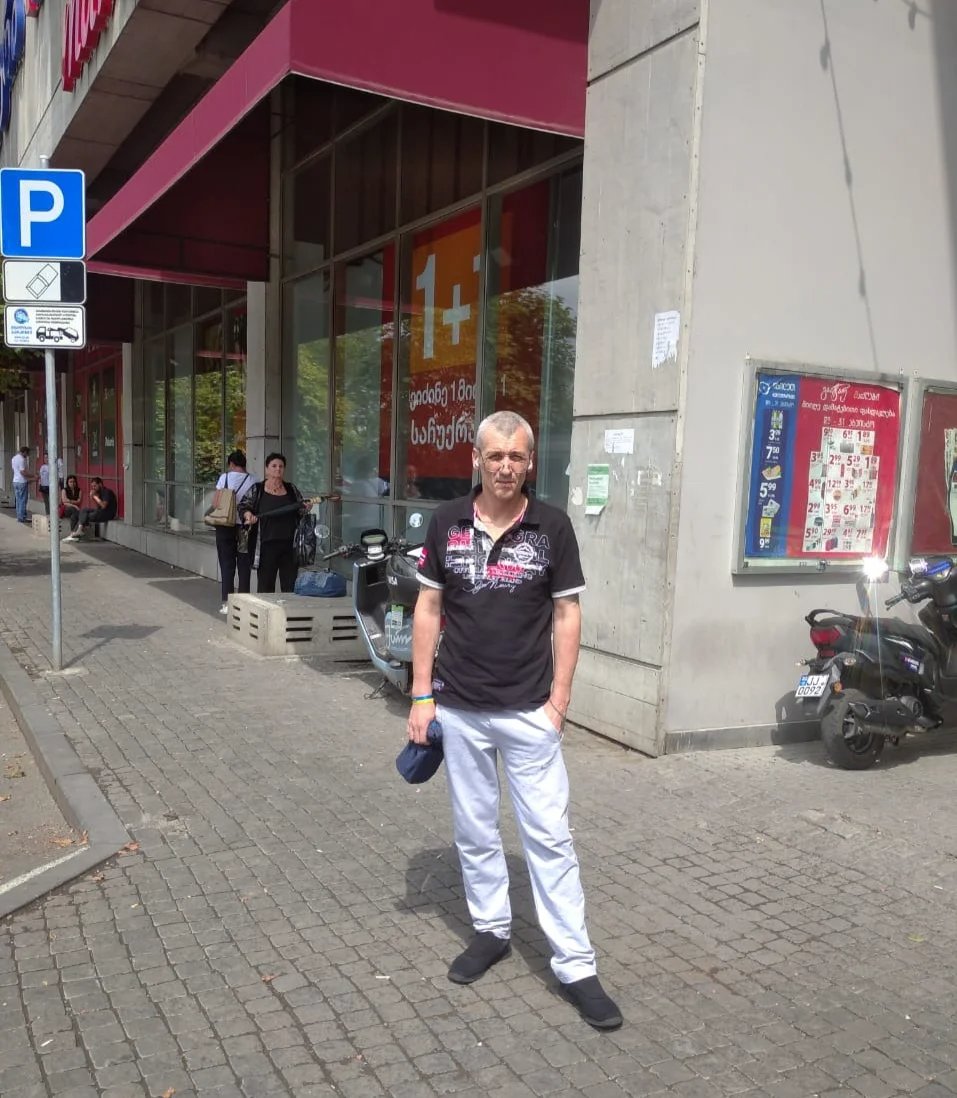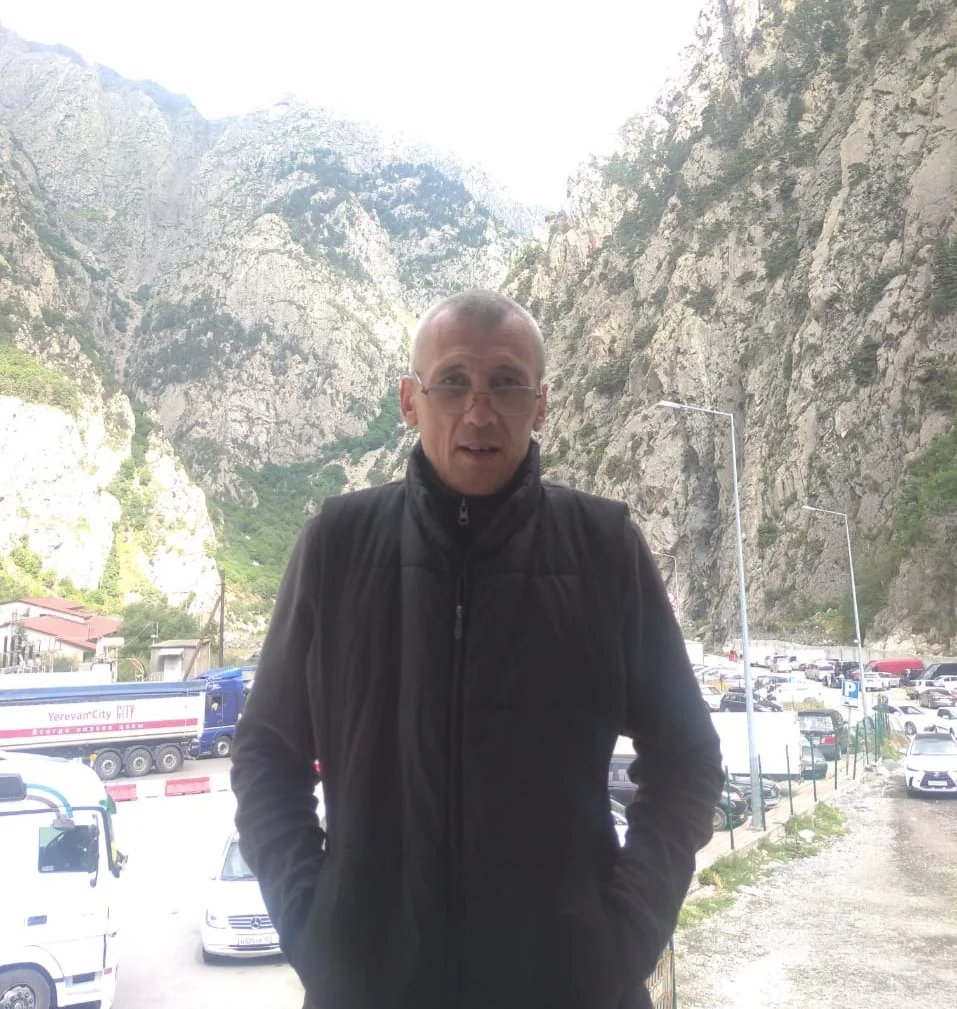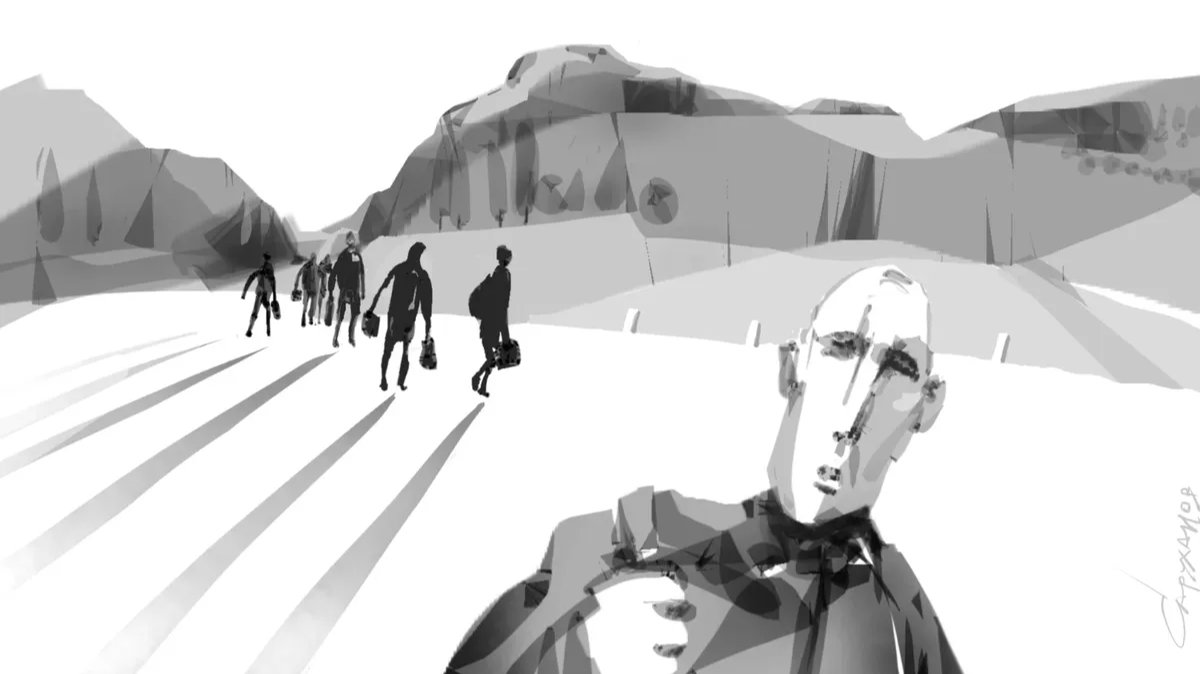In June 2023, Novaya-Europe published the story of a Ukrainian prisoner who was forcibly transferred from the Kherson region in southern Ukraine to Russia. He was not alone, some 2,500 convicted Ukrainian citizens who were serving their sentences in Kherson’s prisons were effectively kidnapped by the Russian army in violation of the Geneva Convention.
Zone of occupation
Oleksii Zarubin was serving a prison sentence at a prison in the southern Ukrainian city of Kherson when the Russian invasion began. He learnt about the war early on the morning of 24 February last year when his worried friends and family attempted to call him. By 3 March, Russian forces were marching into the city.
“I felt very down, of course. It was total despair. Something’s happening around you, there are explosions, and you are behind barbed wire and can’t do anything,” Zarubin says.
His home town of Mykolaiv was constantly targeted by shelling during the beginning of the war, and every time Zarubin saw missiles flying overhead in that direction, he would quickly message his mother to tell her to take cover.
After the Russian military’s arrival in the city, the prison guards were presented with an ultimatum: either sign a contract with the “new authorities” or resign. Surprisingly, the guard shift known to prisoners to be the strictest towards them also ended up being the most principled, with every member stepping down rather than betraying their own country.
Zarubin says that many of the guards that stayed on hadn’t necessarily been motivated by love for Russia – those who lived in the Mykolaiv region simply had no other choice, as they could no longer travel home for fear of being arrested when attempting to cross into Ukrainian-controlled territory.
“So, we, us and them, were waiting for the Ukrainian army. These wardens never bothered us, unlike those who were happy that the Russians had arrived.”
The prison warden was, however, very willing to collaborate with the occupiers, according to Zarubin. “He appeared to have been their agent before the war, it was as if he was just waiting for the Russians to arrive,” he adds.
The prisoners’ waiting for the return of Ukrainian forces turned out not to have been in vain and Kherson was duly recaptured by the Ukrainian Armed Forces in late October last year. On the night before the city fell, Zarubin recalls the Russians seeming nervous as they hurriedly packed everything up. The prisoners hoped that they’d simply be abandoned in the prison when the Russians fled, but instead they found themselves being transferred to the right bank of the Dnipro river.
Creatures without rights
In early November, Oleksii and 250 of his fellow prisoners began their journey to the city of Krasnodar in southern Russia via occupied Crimea.
In the regional capital Simferopol, the Kherson prisoners were all beaten upon arrival and made to stand for two hours straight in a tiny cell. The men were then instructed to proceed in single file towards police vans, hunched over and with their eyes lowered, and were struck with batons as they did so.
Zarubin says that the prisoners were then stripped naked and ordered to sit on a cold concrete floor to await mandatory shaving. The Ukrainians were beaten up before and after by members of what he believed to be Russian Special Forces, all of whom had their faces covered to avoid being identified.
There was blood and, in some cases, broken bones, Zarubin remembers. “Luckily, they didn’t kill anyone. But no one was resisting either. How could you? They were well-fed and armed terrorists, while we were all gaunt and haggard, and had gone two days without food.”
Zarubin’s tattoos, one of which features a woman in a German military uniform, earned him some supplementary beatings, he says. “They were screaming that I’m a fascist, but this prison tattoo is a protest against the prison administration, it is not linked to Nazis or even the criminal world, any convict or prison warden knows it,” he continues. “It was just an excuse.”

Oleksii Zarubin in Tbilisi. Photo from his own collection
One beating left Zarubin incapable of turning his neck for two weeks due to a pinched nerve. He also had his ribs broken but was forced to simply cope with the pain and wait for them to heal naturally. He isn’t sure what happened to some of his fellow prisoners after the beating. He and six others were sent to a punishment cell for 15 days for their tattoos. They were told this would be just the first sanction of many, with officers promising them fines and, ultimately, a new prison term.
Knowing that a prisoner in Russia is a creature with no rights, the Ukrainians simply tried to keep their heads down and survive, Zarubin says. While they were constantly watched and listened to, at least the hell they were subjected to upon their arrival was never repeated after that.
Necessary citizenship
The prisoners had been advised to obtain a Russian passport while still in Kherson during the first month of the occupation, although the majority declined to do so. Of the 80 people in his barracks, Zarubin says perhaps 20 filled out an application, though even they didn’t receive anything while the prisoners were still in Ukraine.
The Kherson prisoners next heard about it in Krasnodar. This time, about 70 out of 250 agreed. But not because of their burning desire to live in Russia, they were warned that unless they had a Russian passport by the time they were released, they would be sent straight to a migration prison.
By now, the prisoners had a far greater incentive to obtain a Russian passport, as they had learnt of the existence of a special border crossing between Russia and Ukraine at Kolotilovka-Pokrovka, which they could in theory use to get home as long as they held Russian citizenship.
However, passports were by now only being given to Ukrainians whose registered address fell within the Russian-controlled regions of Ukraine. Zarubin was lucky and received his.
On 28 July, Zarubin was released from captivity and sent to a deportation centre where he stayed for three weeks. He said there had been around another 60 Ukrainians in total in the facility.
No man’s land
On 16 August, Zarubin was put in a van with five other Ukrainians and taken to the border checkpoint between Russia and Georgia. Upon arrival, the Ukrainians had their handcuffs removed and their passports returned. Zarubin to this day is unsure why the six of them were chosen to be released.

Oleksii Zarubin. The buffer zone between Russia and Georgia. Photo from personal archives
Russian border guards stamped each of their passports to disqualify them from re-entering Russia and pointed them in the direction of Georgia. The Ukrainians were finally out of Russia.
However, their elation quickly turned sour when all six of them were taken for questioning by Georgian border guards. Four hours of interrogation later, they were unceremoniously handed papers officially barring them from entering into the country. The Georgian border guards instructed the men to head back to Russia but they refused.
The men slept outside in the open air and didn’t have anything to eat for the first two days. They pleaded with passers-by to buy them water in the duty free shop, which they weren’t allowed into. Finally, on the third day of their ordeal, activists managed to deliver them food, water and Georgian SIM cards.
The men also found a temporary place to shelter with some construction workers who agreed to let them stay in their shared room with them. In total, the Ukrainians spent 11 days in limbo between two countries that wouldn’t allow them entry.
“Of course, we would sometimes fall into despair in those conditions. But nobody wanted to go back to Russia, that’s for sure,” Zarubin remembers. “We thought that it would be easier to die in this no man’s land than to return to the land of the aggressor.”
The men owe the breaking of the border impasse to a Georgian border guard who came to see them on the 11th day of their ordeal. He advised them to record a video promising that they would not apply for asylum while in Georgia, and explaining that they only needed to transit the country on their way home. The men immediately did as the guard suggested, were allowed to enter Georgia shortly afterwards and then set off on the last leg of their journey home.
Join us in rebuilding Novaya Gazeta Europe
The Russian government has banned independent media. We were forced to leave our country in order to keep doing our job, telling our readers about what is going on Russia, Ukraine and Europe.
We will continue fighting against warfare and dictatorship. We believe that freedom of speech is the most efficient antidote against tyranny. Support us financially to help us fight for peace and freedom.
By clicking the Support button, you agree to the processing of your personal data.
To cancel a regular donation, please write to [email protected]

